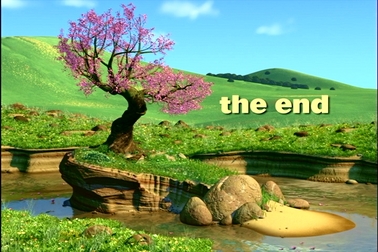Between Stockholm Syndrome and Lima Syndrome
Part 57: The Courage to Accept Outside Influence with Grace and Gratitude
Even in my previous life as a Catholic, I had never been mesmerized by any hymn. Now that I'm a religious skeptic or agnostic or infidel or whatever label is stuck on my forehead, I'm spellbound by Domine Fili unigenite. Composed by Italian composer, violinist, and priest Antonio Vivaldi (1678-1741), it's sung by yogini Mercedes Bahleda who utilized yoga breathing techniques and lyrical Buddhist chants. The result: a smooth synergy between Catholicism, Hinduism, and Buddhism.
One may not like how Mercedes Bahleda interpreted Domine Fili unigenite, but that's not the point. The point is that this version of Domine Fili unigenite exemplifies how we should believe in what we believe. In other words, how we should become a better and open-minded believer who welcome outside influence and other religions and belief systems.
With grace, gratitude and humility.
To put everything into context and perspective, just last week on June 15, 2016, a famous Sufi singer Amjad Sabri was assassinated by Taliban gunmen in Karachi. Amjad Sabri is known for his qawwalis, which is a form of Sufi devotional music popular in South Asia. It was reported that a splinter faction of the Sunni Pakistani Taliban claimed responsibility for this targeted killing, claiming that Sabri's qawwalis were "blasphemous."
How Mercedes Bahleda sang Domine Fili unigenite is an example of how people should use religion. On the other hand, how the Sunni Talibans gunned down a fellow Pakistani Sufi singer—due to idiocy, insecurity and holier-than-thou inferiority complex—is an example of how people are being used by religion.
Judge for yourself.
[To be continued.]
Johannes Tan, Indonesian Translator & Conference Interpreter
One may not like how Mercedes Bahleda interpreted Domine Fili unigenite, but that's not the point. The point is that this version of Domine Fili unigenite exemplifies how we should believe in what we believe. In other words, how we should become a better and open-minded believer who welcome outside influence and other religions and belief systems.
With grace, gratitude and humility.
To put everything into context and perspective, just last week on June 15, 2016, a famous Sufi singer Amjad Sabri was assassinated by Taliban gunmen in Karachi. Amjad Sabri is known for his qawwalis, which is a form of Sufi devotional music popular in South Asia. It was reported that a splinter faction of the Sunni Pakistani Taliban claimed responsibility for this targeted killing, claiming that Sabri's qawwalis were "blasphemous."
How Mercedes Bahleda sang Domine Fili unigenite is an example of how people should use religion. On the other hand, how the Sunni Talibans gunned down a fellow Pakistani Sufi singer—due to idiocy, insecurity and holier-than-thou inferiority complex—is an example of how people are being used by religion.
Judge for yourself.
[To be continued.]
Johannes Tan, Indonesian Translator & Conference Interpreter




 RSS Feed
RSS Feed